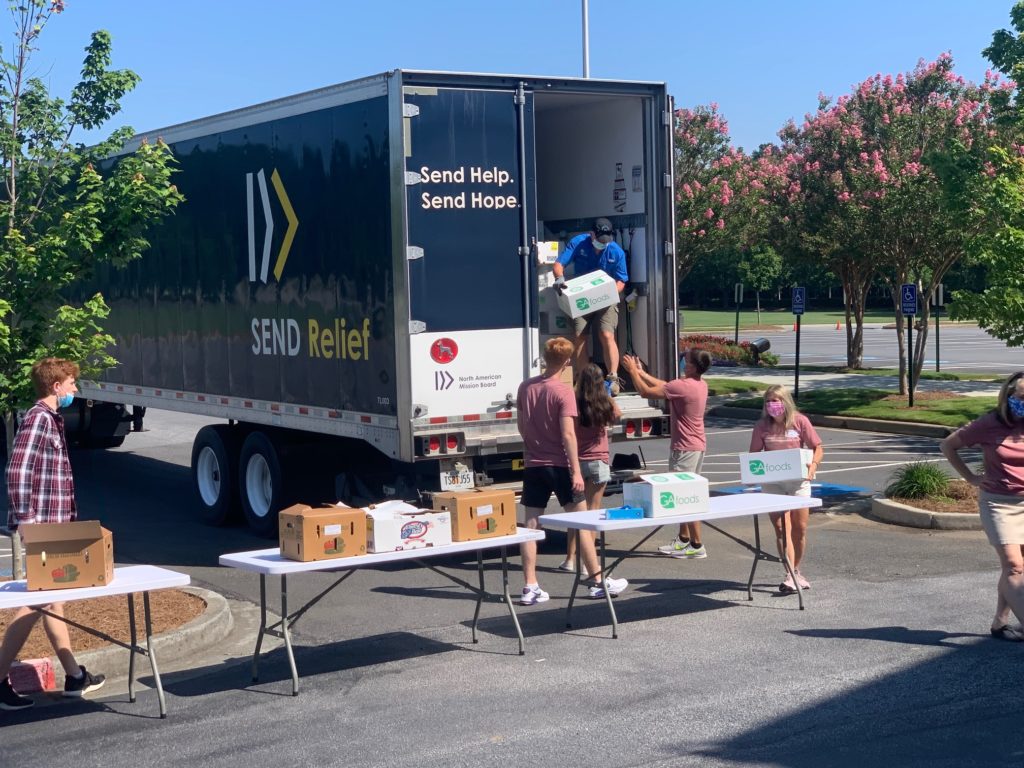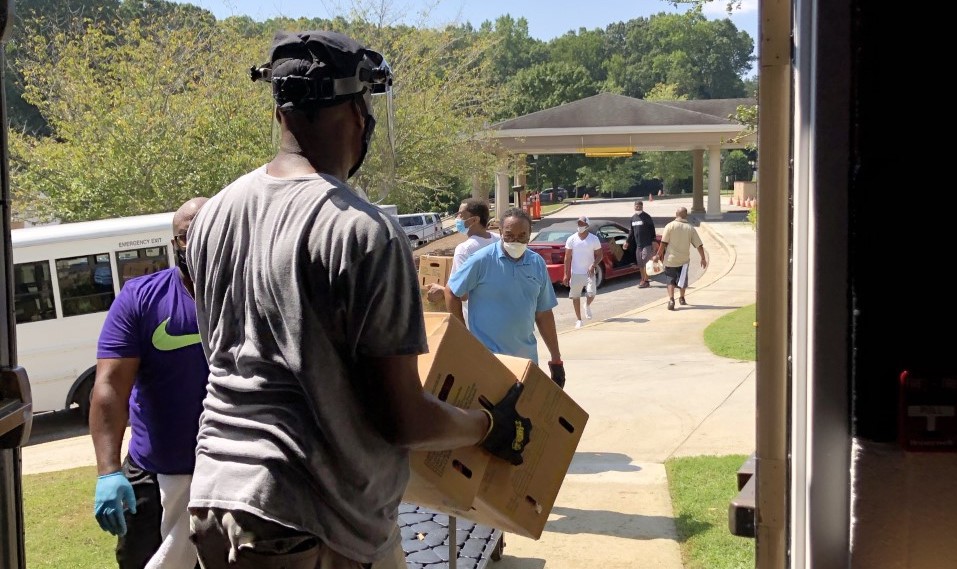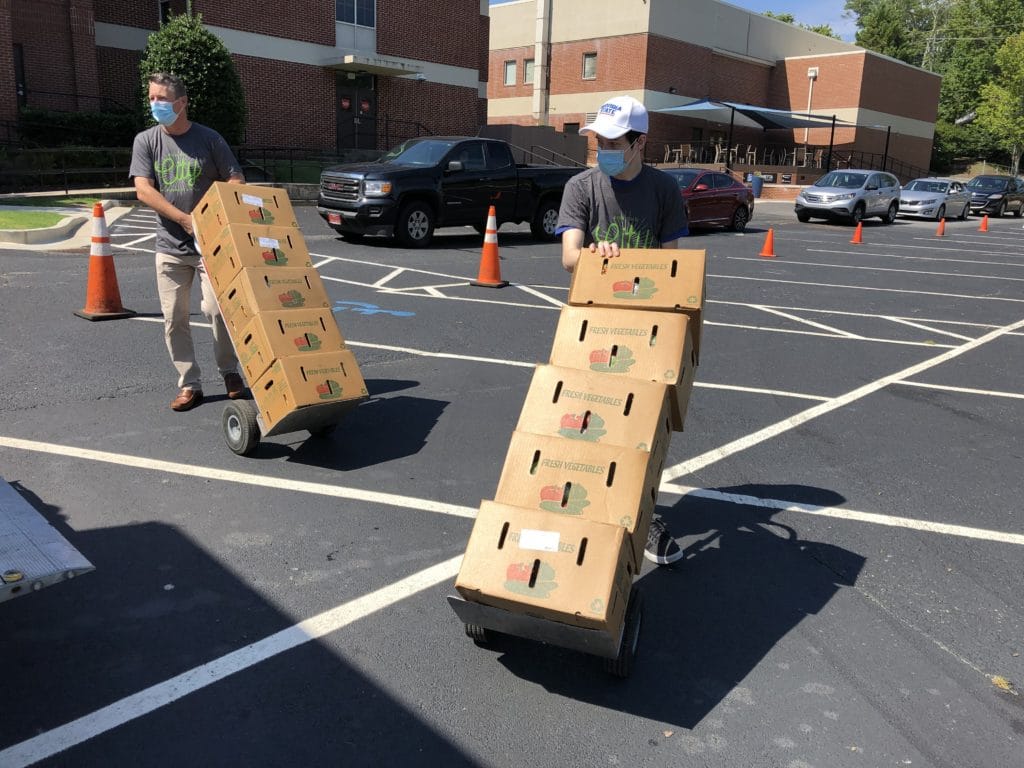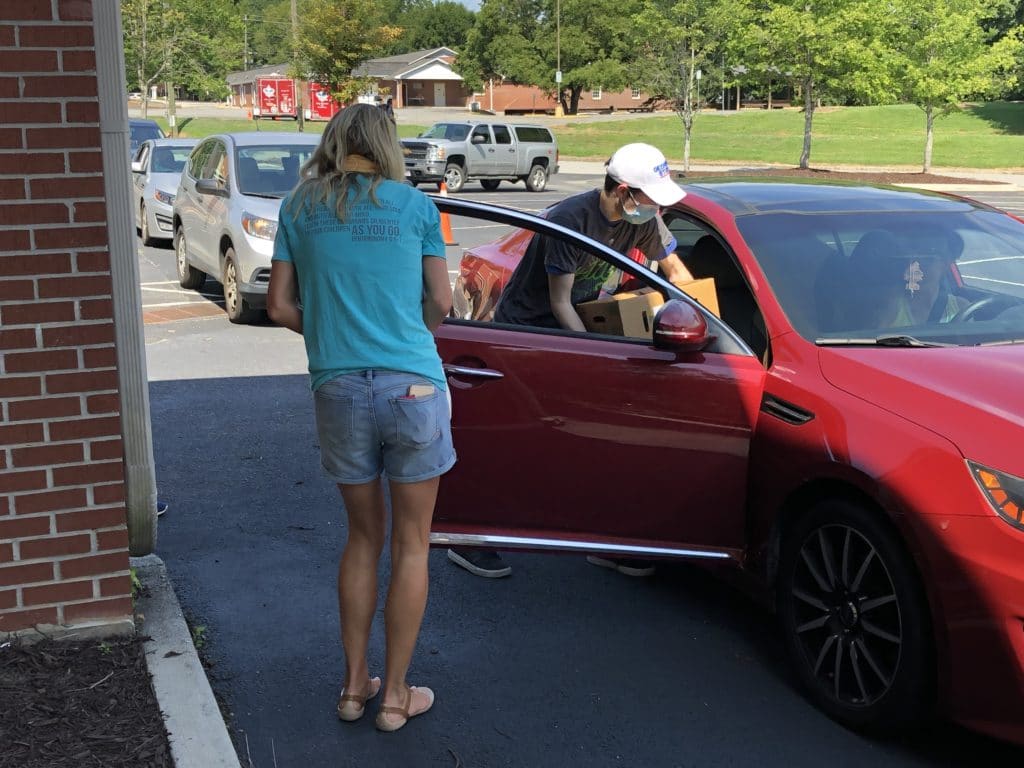ALPHARETTA, Ga.—School districts across the nation are striving to continue delivering food to children at risk when school buildings close due to the COVID-19 pandemic. When Fulton County Schools (FCS), the fourth largest school system in Georgia that includes the city of Atlanta, needed assistance with its food distribution program to families who receive free and reduced-price lunches, the faith community, including the North American Mission Board (NAMB), were the first group they decided to contact.

“The school system has maintained a relationship with the faith community since I’ve been here, under three different superintendents,” said Samantha Maxey, the director of community relations with the FCS. “They all felt it was important for the district to partner with our faith community, so much so that they included developing these relationships in the district’s strategic plan.”
Fulton County’s school district is 80 miles long and includes nearly 100 schools. Typically, those schools serve as the primary distribution point for breakfast and lunch when classes are in session. When the campuses close, whether for spring break or during a two-week period as the fall semester ramps up, FCS works with area churches to be distribution centers.
This year when August arrived, FCS needed help storing the perishable dairy items as they staged the food ahead of distribution to the various churches.
Maxey thought of NAMB and the Send Relief trucks she often saw in the parking lot as she drove by NAMB’s facility on North Point Parkway. Two of those Send Relief semi-trailers have climate control, allowing them to store the refrigerated items provided by the Atlanta Community Food Bank.
“Everyone has been so gracious,” Maxey said of working with Send Relief. “It sounds simple when you make the request, but the little things make it really complex, and everyone that I’ve worked with has been amazing, saying, ‘Don’t worry about it. We’re going to get this done.’”

First Baptist Church Alpharetta, Ga., and Elizabeth Baptist Church in Atlanta were among eight congregations FCS worked with.
“What Elizabeth and our pastor, Craig Oliver, want people to know is that Elizabeth is there. We are in the community, and we are a resource for the people around us,” said Regina Rogers, coordinator of evangelism and missions at Elizabeth Baptist.
For Elizabeth Baptist, being a distribution point is one aspect of their continued service to their community through the various campuses of their church, especially during the months of the COVID-19 pandemic. They have built relationships, shared Christ and prayed with with their neighbors in nearby apartment complexes through their outreach called Operation Uplift.
“Our teams are blessed by serving people. It’s a great thing to know that you’re making an impact and serving the community,” Rogers said. “That is satisfying for us, and we feel that God is glorified through the ministry.”

First Baptist Alpharetta has also made a point of serving their community during the trying months of the pandemic, and the church was anxious to help FCS provide food for families in need. During the first week, roughly 100 families came to the church to pick up food, according to Jim Mason, mobilization pastor for the church.
“In a time where it would be very easy to pull back or for people to shy away from some of the needs,” Mason said. “It’s been really great to see some of the connections that we can build in the community in times like this and doors that are opening that maybe we didn’t have before.”

Through the various outreach and ministry projects their church has done during the pandemic, Mason said that people have engaged with the church after being served. Some who are not even a part of the church have served alongside the church on a project, only to join later by viewing online or coming in person.
The spirit and eagerness of churches that want to serve their communities is one of the keys that leads FCS to work with the faith community.
“I do this for a living,” Maxey said, “but I find so much personal gratification just watching these churches come together, different denominations, but all coming together to help their neighbors.”
Published August 13, 2020